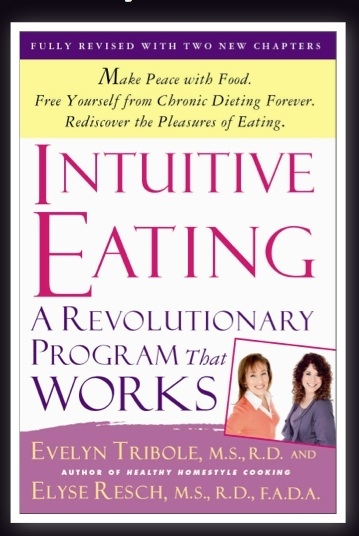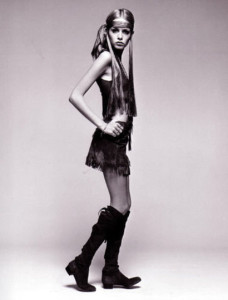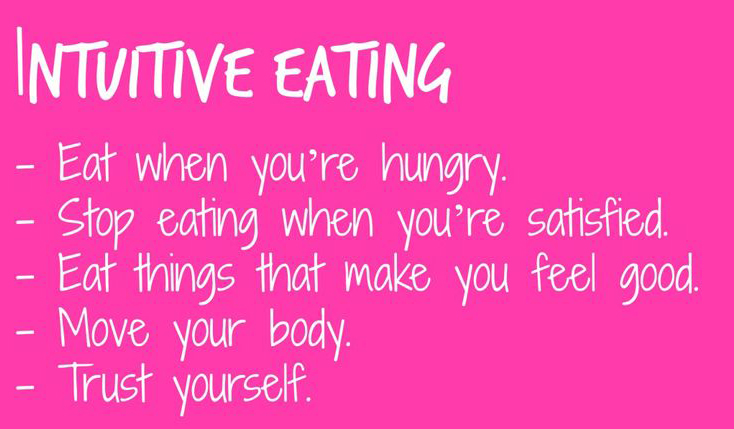On Tuesday I did a post about “Disordered Eating.” This is a follow up, so if you’re bored with this topic, check back in next week. If not, please keep reading.
 There were interesting discussion threads on Facebook and Instagram in response to my post on Tuesday—thank you! This is obviously a topic of importance to many people. One person left a comment on Tuesday’s post asking for a recommendation for an in-patient therapy program for her morbid obesity, and I’ve put her in touch with two people in her city who might have suggestions. And two different people who live in two different cities both mentioned the book INTUITIVE EATING by Evelyn Tribole and Elyse Resch. These two women are both seeing nutrition experts for help with their eating disorders. I got the book on Wednesday and read most of it in two days. (And yes, I finished off another bag of Hershey’s kisses in the process.)
There were interesting discussion threads on Facebook and Instagram in response to my post on Tuesday—thank you! This is obviously a topic of importance to many people. One person left a comment on Tuesday’s post asking for a recommendation for an in-patient therapy program for her morbid obesity, and I’ve put her in touch with two people in her city who might have suggestions. And two different people who live in two different cities both mentioned the book INTUITIVE EATING by Evelyn Tribole and Elyse Resch. These two women are both seeing nutrition experts for help with their eating disorders. I got the book on Wednesday and read most of it in two days. (And yes, I finished off another bag of Hershey’s kisses in the process.)
It’s a complex book and program, so I’m not going to try and do a full review here. I will respond to the book’s 10 Principles of Intuitive Eating and a few other excerpts from the book.
First let me introduce the authors. Evelyn Tribole, M.S., R.D. is a registered dietician with a nutrition counseling practice in Newport Beach, California, specializing in eating disorders. Elyse Resche, M.S., R.D., F.A.D.A., C.E.D.R.D, has been in private practice in Beverly Hills, California, as a nutrition therapist for thirty years, specializing in eating disorders, Intuitive Eating, and preventative nutrition. . (C.E.D.R.D. stands for Certified Eating Disorder Registered Dietician—yes, there actually is such a thing!)
 And before I go any further, I’d like to share a link to a blog post I found while clicking around this morning: “Why Intuitive Eating is Making Me Sad.” I think this short post is important because the author is simply making the observation that this program or principle, which claims to be “revolutionary,” is really a return to the way people used to eat before the diet craze took over our world. I think her words are a good addition to this conversation. For me personally, I barely remember that pre-diet-craze time…. only a few years in the 1950s when I happily ate my grandmother’s homemade rolls, fried corn, and homemade ice cream without guilt. My grandfather who molested me when I was 4-5 died around 1956, and it would take several decades for me to make the connection between those acts and my disordered drinking and eating. By the time I was a teenager, my mother had already started in on me with the “fat talk” (this is explained in the book) and shaming, and my eating disorder was in full force in the 1960s. Just when Twiggy came on the scene and I wanted to be her. Thankfully my eating disorder never became as life-threatening as anorexia, although there were times when I wished I could be anorexic so I could be skinny. Yes.
And before I go any further, I’d like to share a link to a blog post I found while clicking around this morning: “Why Intuitive Eating is Making Me Sad.” I think this short post is important because the author is simply making the observation that this program or principle, which claims to be “revolutionary,” is really a return to the way people used to eat before the diet craze took over our world. I think her words are a good addition to this conversation. For me personally, I barely remember that pre-diet-craze time…. only a few years in the 1950s when I happily ate my grandmother’s homemade rolls, fried corn, and homemade ice cream without guilt. My grandfather who molested me when I was 4-5 died around 1956, and it would take several decades for me to make the connection between those acts and my disordered drinking and eating. By the time I was a teenager, my mother had already started in on me with the “fat talk” (this is explained in the book) and shaming, and my eating disorder was in full force in the 1960s. Just when Twiggy came on the scene and I wanted to be her. Thankfully my eating disorder never became as life-threatening as anorexia, although there were times when I wished I could be anorexic so I could be skinny. Yes.
So back to the book. I read 10 of the 17 chapters, and skimmed the other 7. It’s not that those chapters aren’t important. It’s just that they address things that I had already learned in my 67 years and didn’t need to revisit. FULL DISCLOSURE: I must say up front that I don’t embrace a major tenet of this approach, which is that the patient/client must put weight-loss on the back burner as they work through this program. I have lost almost 20 pounds in the past two years, but I’d like to lose at least 10 more, so I’m not willing to put this “on the back burner.” This isn’t a one-size-fits-all issue, and in Chapter 2: “What Kind of Eater Are You?” I didn’t fit any of the descriptions. The one that came closest for me was the “Emotional Unconscious Eater,” although I’m very conscious of my eating. This type:
“uses food to cope with emotions, especially uncomfortable emotions such as stress, anger, and loneliness. While Emotional Eaters view their eating as the problem, it’s often a symptom of a deeper issue. Eating behaviors of the Emotional Eater can range from grabbing a candy bar in stressful times to chronic compulsive binges of vast quantities of food”
So, Chapter 11 was possibly the most helpful chapter for me:
PRINCIPLE 7: Cope With Your Emotions Without Using Food
This chapter is summarized in the 10 Principles of Intuitive Eating I mentioned earlier:
Find ways to comfort , nurture, distract, and resolve your issues without using food. Anxiety, loneliness, boredom, anger are emotions we all experience throughout life. Each has its own trigger, and each has its own appeasement. Food won’t fix any of these feelings. It may comfort for the short term, distract from the pain, or even numb you into a food hangover. But food won’t solve the problem. If anything, eating for an emotional hunger will only make you feel worse in the long run. You’ll ultimately have to deal with the source of the emotion, as well as the discomfort of overeating.
The chapter goes into detail about various emotional triggers and the ways we use food for comfort, distraction, sedation, and even punishment, although that last one hasn’t been my experience. While there wasn’t anything “new” for me in this chapter—I kept waiting for the magic answer—the easy ways to find comfort without using food—it was reaffirming:
Becoming an Intuitive Eater means learning to be gentle with yourself about how you use food to cope, and letting go of the guilt. As odd as this may sound, eating may have been the only coping mechanism you had to get through difficult times in your life.
I identified with that statement, with one really big caveat: for years I used alcohol as my coping drug of choice. But one year ago tomorrow (yes!) I quit drinking, so food has moved back into the forefront of my struggles, with renewed vigor.

The main things about Intuitive Eating that make sense to me are things that I already embrace. I am a mindful eater and am aware of when I am full and can often stop eating at that point. Like yesterday when I had lunch with a friend and only ate half of the two sushi rolls I ordered. I was full and comfortable with that amount. It wasn’t hard to stop eating because the food, which was delicious, made me happy. I was also enjoying the company of a friend, so I wasn’t lonely. The day before, I had buttered two halves of a blueberry bagel and toasted them for breakfast. My husband walked in and said, “something smells good,” and I realized that I was full after eating one half, so I gave him the other half. (I had also eaten a peach.) All this to say that I already get the mindful eating thing, and I actually practice it fairly regularly, where meals are concerned. And thankfully the binge eating has almost gone away during this year that I’ve not been drinking, so that’s interesting. I haven’t had a bulimic episode in many months. It’s the trigger foods (like Hershey’s kisses) that I’m struggling with controlling, and I don’t really see how this book addresses those issues directly. Maybe they will resolve themselves as I get healthier in general. If I ever reach the point, as page 163 in the book describes, “When Food is No Longer Important” (when a person reaches the point where they’re no longer using food to cope with their emotions):
You no longer have the “benefits” of using food…. One client noted that on tough days she knew she could always go home to her chocolate. Now, instead, she’s “stuck” with experiencing her feelings. You might even need to go through a grieving period for the loss of food as comforter and companion.
This is probably the most important paragraph in the whole book for me. This describes exactly what I’ve been able to do with alcohol for the past year. Almost every day (at least for the few first months) there’s a time when something triggers me and I want vodka so badly I can hear the martini shaker going in my mind and I can taste the magic on my lips. But since I made the decision not to drink, this is no longer an option for me. I have GRIEVED the loss of this comfort, but like grief over the death of a loved one, it’s getting easier with time. I’m thinking that I will need to make similar choices about certain foods (like Hershey’s kisses) that I can’t seem to limit. I already do this in some ways—like not buying kettle-cooked potato chips very often because I will eat the whole bag at once. But I do choose to buy those chips at times, maybe about once or twice a month. Maybe intuitive eating for me will mean making these hard choices more frequently, and allowing myself to “experience my feelings in a deeper, stronger way” as the book says. I used alcohol to numb those feelings for so many years, and now I’m trying to learn to quit using food in the same way.
The chapter of the book about respecting your body also hit a strong note with me. I already do the “nice things” the book suggests, like getting massages and regular visits to the nail and hair salon. And I’m embracing moderate exercise, which is discussed in another chapter in the book. I was an exercise “addict” in the 1980s when I ran an aerobic dance business. On days that I didn’t work out, I often didn’t eat. When we traveled I looked for an aerobic class to attend, and if I couldn’t find one I would panic. When I quit teaching aerobics at age 40, I began to gain weight again, and the struggle has intensified over the years. But I’ve finally made peace with exercising moderately on our elliptical machine in my office, and at the swimming pool in the summer. I’m not “driven” to exercise, nor do I feel guilty if I skip but it makes me feel so much better to MOVE my body, that I’m drawn to it fairly naturally.
I’ve also been learning to really enjoy food at times by eating mindfully, eating foods I really love in a nice setting. So I think I’ve been on the road to “intuitive eating” for a while, but I’ve got a ways to go with the trigger foods. And I would love to some day be free of my obsession with food and body image. You would think that being 67 years old would help, and in some ways it does. Also, surviving a life-threatening wreck five years ago (when I broke my neck, leg and ankle) has helped, because I have become more THANKFUL for my body and the life it provides for me, when I could have died or become paralyzed. The pain I’m left with does trigger unhealthy eating (as it once triggered the alcohol) but I’m learning to use other means to help deal with the pain.
Chapter 14 was helpful: PRINCIPLE 10: Honor Your Health With Gentle Nutrition. Again, it didn’t have a lot of information that was NEW to me, but it confirmed a number of things that I’ve been learning over the years that make me think I’m moving in a good direction. I think that for me, right now, today, focusing on how eating certain foods and certain amounts of food makes me FEEL is key.
The bottom line is, I’m tired. I’m tired of food and weight and appearance taking up so much of my life. One of the clients described in the book talked about her obsession with clothes and body image while preparing for upcoming social events. I do that when preparing for speaking engagements on my book tours. Like this weekend, when I’m flying to South Carolina to speak on a panel sponsored by the Pat Conroy Literary Center. It’s an honor and I’m excited about it, but of course I’m also keenly aware that the other women on the panel are thinner than me (two are quite a bit younger as well) and I worry about what to wear and I compare myself to these other women. I’m sure that the people in the audience are just there to hear about our books and our lives as southern writers, but I can’t help but worry about how I will look.
I’m hopeful that I’m moving towards making peace with these issues, and while I don’t think this book is a magic bullet, I do appreciate some of the wisdom its authors have shared. I’ll close with an excerpt from Chapter 16: The Ultimate Path Towards Healing From Eating Disorders:
The vision of a future, free of obsessive thinking and compulsive behaviors is very powerful. This hope can facilitate the patience it will take to get through the period of time that is needed for healing.
Thanks, always, for reading and please join the discussion here or on Facebook or Instagram.
As always, you bravely take on the tough issues. and as always, beautiful writing.
Thanks, Nina. Are you familiar with this book? Does any of this resonate with your counseling experience?
Susan, I cannot thank you enough for this share. I have ordered the book on Kindle and the paperback workbook. When I opened the workbook, I knew from the very first assessment that I fit so well….
I’ve tried every diet in the book and realized about a year ago that dieting is actually a problem for me. Dieting shames me constantly. I did find a website called Psych Central that some readers might like and that has been helpful to me. https://psychcentral.com/disorders/eating-disorders/
Hi Diana. I hope that you find some help with the book and workbook. While it wasn’t an “exact fit” for me, I did find some good wisdom throughout the book. Wishing you all the best!